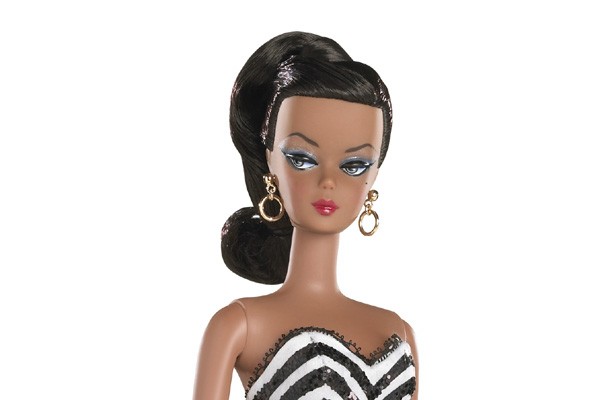
I have really terrible taste in music. Ask any of my friends and they will tell you my taste in music stalled somewhere in 1997 when Sarah McLachlan's Surfacing came out. If I can't sing along to it, I can't listen to it -- sorry Radiohead. As a result I have incredible taste in one very specific area of music: female vocalists. When I have insomnia I turn on Billie Holiday and clean my house until her depression exhausts me; "Love is a Battlefield" must be sung at the top of your lungs on Fridays; there is no shame in your game if a Celine Dion ballad makes you cry and Nina Simone is my hero.
Nina Simone was beautiful. She had dark skin, full lips, nappy hair and a wide nose. She was proud of the way she looked and was often frustrated about the treatment of others based on skin tone alone. She was this amazing proud creature who had a voice from another world. She was an activist, a storyteller and a fighter, so it is no wonder that Cynthia Mort wants to bring her story to the screen with a biopic of her artistic journey.
What is a surprise to many is that Mort has chosen Zoe Saldana to play Simone. You really just have to do a Google search for Zoe Saldana and Nina Simone to get a pulse on what the internets are saying about this casting decision. People are hot. "Zoe is not black she's Latina!" "Zoe's nose is too small." "This film is unauthorized." "Why isn't India Arie playing Simone?" (Thank goodness she isn't; can she even act?) But what all of these people, with fair complaints, are failing to realize is that the real reason why Zoe was chosen over, say, Viola Davis or Kimberly Elise, is what I call the Black Barbie syndrome. Black Barbie syndrome is the idea that Hollywood is not really interested in black women so much as they are interested in casting slightly darker white women. (Black Barbie dolls used to be the same mold as Barbie dolls, but poured with brown rubber.)

Not long ago, an edict came out in Hollywood: The NAACP said, you must be more diverse. More black people on every show, more black people in movies, more black people everywhere -- give us more color MORE COLOR! And so the Hollywood types went forth and put more black men in movies and TV and commercials. Men. Think about it. When was the last time you saw a black actress star -- and I mean as the lead -- in a film? Was it Angela Bassett in What's Love Got to Do With It? That film came out in 1993. Was it Beyoncé in something? That doesn't count -- she's not an actress. Thank goodness for the indie film world though, right?
In another life, I was an actress. I got a relatively useless degree in acting at a very good school. I called myself a vegetarian and subsisted on cucumbers, tomatoes and Jelly Bellies. I exercised two to three hours a day, was unrecognizably thin, formed a very stylish eating disorder, was cast in television shows with speaking roles on major networks and acted opposite bonafide B-list actors in films. I was a real actress. But no matter how hard I studied, no matter how many theater credits I racked up playing Juliet, Hermia, this ingénue and that ingénue, and no matter how thin I got, on screen I was relegated to playing Cop 1, Nurse 3, sometimes Nurse with a proper name, or Collette, girl from the hood. I was never considered for Girlfriend, or Kindergarten Teacher and never Young Mom 1 -- the roles that inevitably launched you into the bigger roles. You can say it was because that was my "type" or because I wasn't very good (I was very good). But the uncomfortable truth is that I wasn't the right "type" because I have brown skin and thick lips and a wide nose. Kindergarten teachers and girlfriends don't look like me. If they're black, they look like Halle Berry or Jada Pinkett. Bus drivers and sassy maids from the 1950s have big lips and wide noses.
I point this out because what the people who are upset with Zoe Saldana don't understand is that their anger is misplaced. Don't get mad at Zoe, she just took a job, and good for her! Get angry because there was finally a role for a black actress, the type of actress who typically is relegated to playing cop, or maid, or union-hating teacher, and they gave the role the Hollywood Black Barbie treatment -- flying in the face of everything Nina Simone stood for! Be furious that Scandal is the first show on network television in 30 years with a black female lead. Thirty years, people! And it took multiple Emmy awards and a film actress to get it greenlit. Be outraged because Hollywood doesn't celebrate how beautiful all black women are, but shows preference to women of fairer complexions and smaller features. Get pissed about what really matters, not some actress trying to win her Oscar.
Nina Simone was a gorgeous black woman with the features of her ancestors: dark brown skin and thick lips, wooly hair and wide nose. She will be depicted by a lovely Dominican woman in brown face and prosthetic nose. Hollywood, Goddamn.
Originally posted to Dog Park Media Magazine